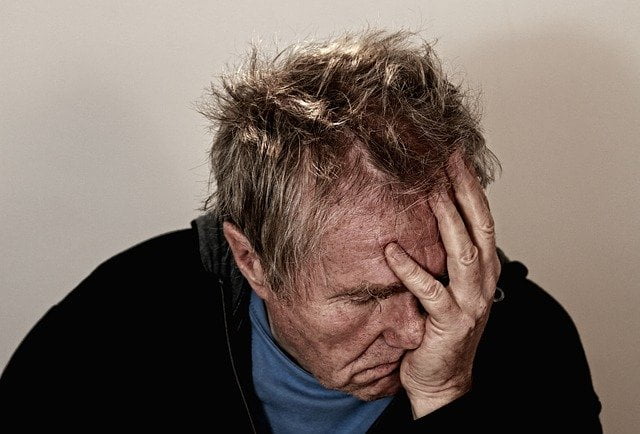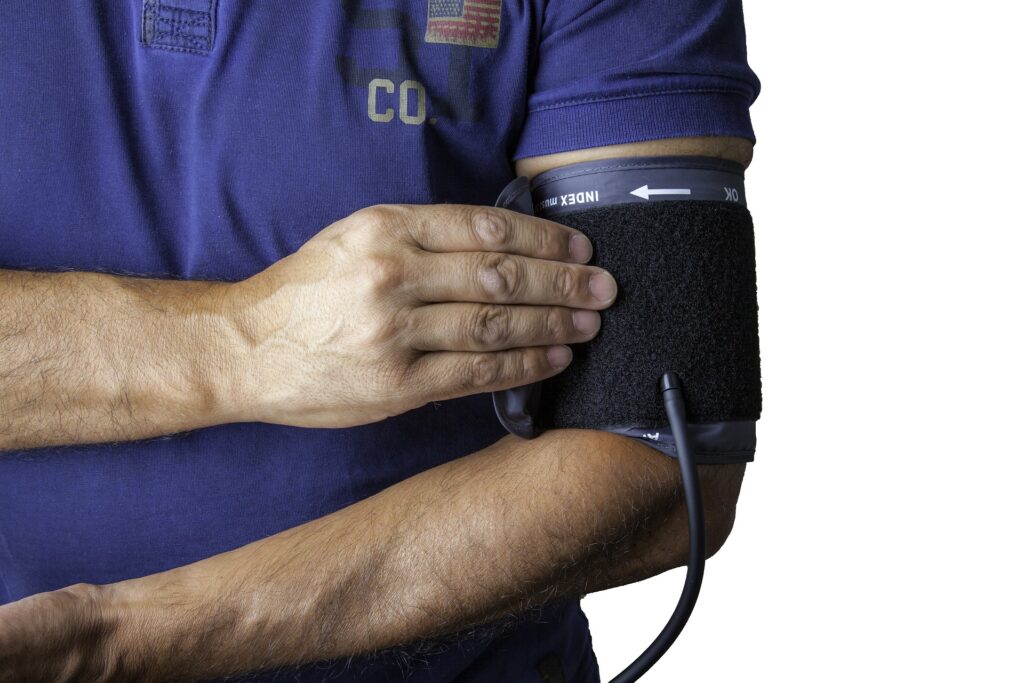- Home
- Addiction Detox
- Xanax Detox
Xanax Detox
Undergoing a Xanax detox can be a difficult process and is likely to result in a number of physical and psychological side effects.
Many people feel apprehensive about the idea of undergoing a Xanax detox, but with the help of medical staff at a specialised rehab clinic, you will be able to take this important step towards addiction recovery and take control of your health.
What Is Xanax?

Xanax is a type of medication that is commonly prescribed by doctors to treat anxiety, panic attacks and some symptoms of depression.
Also known as Alprazolam, Xanax belongs to the benzodiazepine family along with other depressants such as Valium and Rohypnol.
It is relatively safe when taken exactly as prescribed and overseen by a medical professional, but some people purchase Xanax online or from dealers which can contain extremely harmful and dangerous chemicals.
Xanax is commonly sold as small pills that can come in a variety of colours, which are either taken orally or used as a suppository.
Those that use Xanax illegally often crush and inject these pills which can cause a variety of problems including skin infections and abscesses.
You should only take Xanax if it has been prescribed to you by a doctor, and never for longer than recommended.
How Does Xanax Work?

When you become anxious, your brain releases a natural chemical known as gamma-aminobutyric acid (GABA) to help you feel calmer.
Xanax enhances the effects of GABA, increasing this calming effect and helping you to feel more relaxed.
As Xanax can help you to feel calm and relaxed, it is commonly prescribed to treat anxiety and panic attacks.
This feeling can become addictive, particularly when paired with other substances.
Some people use Xanax to calm down after taking illegal stimulant drugs such as cocaine or ecstasy, and this can increase the risk of addiction.
Using Xanax in combination with other depressants such as alcohol can be extremely dangerous, as they can repress your breathing and potentially cause a fatal overdose.
What Are The Signs And Symptoms Of Xanax Addiction?

If you or a loved one have been prescribed Xanax by a doctor, it can be easy to overlook the potential symptoms of a Xanax addiction as there is a certain comfort in a medical prescription.
It’s important to remember that it is possible, and indeed extremely common, to become addicted to prescription medication.
Just like any other addiction, a Xanax addiction can manifest in a number of physical, psychological and behavioural symptoms.
The affected person may be able to hide their dependency at first, but over time you will likely begin to notice the signs.
Common signs and symptoms of a Xanax addiction include:
- Obtaining multiple Xanax prescriptions from various doctors
- Frequently ‘losing’ or running out of Xanax before a prescription ends
- Buying Xanax online or from street dealers
- Asking friends and family members for Xanax, or stealing pills
- Using Xanax in ways that were not intended, such as crushing and snorting it
- Frequently appearing drowsy and ‘out of it’
- Being unable to reduce the amount and/or frequency of Xanax use
- Exhibiting slurred speech and difficulty communicating effectively
- Frequent falls, an unsteady walk and poor motor coordination
There is no shame in becoming addicted to Xanax, and you are not alone – benzodiazepines can be extremely addictive.
If you are concerned that you or someone you care about has begun to show signs of a Xanax addiction, speak to your local GP or contact our team at Rehab Recovery on 0800 088 66 86 for support and advice.
Why Do I Need To Detox From Xanax?

Xanax is a highly addictive substance that can cause physical or psychological dependence in a relatively short amount of time.
If you become addicted to Xanax and continue to use this substance, you are likely to experience a range of negative effects and consequences.
These may include the following:
- Financial troubles such as fines and debts
- Legal troubles such as driving under the influence
- Loss of employment
- Strained relationships with friends and family
- Physical health problems such as amnesia and cognitive impairment
- Mental health problems such as increased anxiety and depression
- Hormonal imbalances
- Poor quality of life
A Xanax detox is necessary to avoid these consequences and help you to live a healthy and fulfilling life free from the trap of addiction.
What Happens During A Xanax Detox?

Once you enter rehab for a Xanax detox, you will first undergo a thorough assessment during which a doctor will ask you about your Xanax use and perform various medical tests.
This may involve checking your blood pressure and heart rate as well as taking a blood sample.
You will then begin the Xanax detox, which involves gradually reducing the amount of Xanax you take over a period of time until you are no longer taking this substance.
This slow reduction can help to prevent many of the more severe and uncomfortable withdrawal symptoms and make the process safer for you.
It is common to switch to a less-addictive form of benzodiazepine during this time, which can also help the detox to progress more smoothly.
Once you have completed the physical detox, you will be able to move on to treating the psychological symptoms and root causes of your addiction.
What Withdrawal Symptoms Can I Expect During A Xanax Detox?

As many people take Xanax to alleviate feelings of anxiety and stress, detoxing from this substance can cause these sensations to return.
Your brain and body can become used to functioning with a depressant such as Xanax in the system, which slows down your heart rate and lowers your blood pressure.
Once the depressant is removed, it can take some time for your brain and body to return to normal and rebalance.
During this time you may experience a range of physical and psychological withdrawal symptoms.
Common physical symptoms of Xanax withdrawal include:
- Gastrointestinal issues such as diarrhoea
- Numbness in fingers
- Heart palpitations
- Uncontrollable shaking and tremors
- Lack of appetite
- Frequent headaches
- Painful muscles
- Sudden sensitivity to light, touch, sound and taste
- Painful muscles
- Excessive sweating
- Blurred vision
- Seizures

Common psychological symptoms of Xanax withdrawal include:
- Severe anxiety
- Frequent panic attacks
- Memory loss
- Tactile, auditory or visual hallucinations
- Mood swings
- Depression
- Thoughts of self-harm or suicide
- Insomnia and nightmares
- Extreme paranoia
- Feeling irritable and agitated
- Difficulty concentrating
It is normal to experience withdrawal symptoms, but it is important that you are properly monitored throughout the process.
Some symptoms such as seizures and suicidal thoughts can be dangerous, and you will require support to get through a Xanax detox.
Which Factors Can Influence A Xanax Detox?

If you know someone who has gone through the process of Xanax detox, it is highly likely that their experience will differ from your own.
There are a number of factors that can influence the withdrawal process, from genetic factors to your method of ingestion.
In general, a severe and prolonged Xanax addiction will often result in a more unpleasant withdrawal process.
Common risk factors that can influence a Xanax detox include:
- Your age, height, weight and gender
- The length of your Xanax addiction
- The frequency of your Xanax use
- The severity of your Xanax addiction
- Any underlying mental or physical health issues such as anxiety or PTSD
- The way you ingested Xanax
- Whether you combined Xanax with other substances
- Any family history of addiction
The extent of your addiction may also rely on the above factors.
For example, crushing and snorting Xanax may result in a more severe addiction as the substance is being delivered straight to your brain.
Your Xanax detox treatment programme will be personalised and based on these risk factors, so it is important to be honest with the medical staff at your chosen rehab clinic during the assessment process.
How Long Does A Xanax Detox Take?

If you are preparing to undergo a Xanax detox, you may be wondering how much time to put aside for treatment.
As Xanax is a short-acting benzodiazepine, the first withdrawal symptoms usually emerge within 6-12 hours.
These symptoms will continue for up to a week, peaking and then alleviating by the second week.
Some people continue to experience withdrawal symptoms for months or years after completing a Xanax detox.
This is known as Post-Acute Withdrawal Syndrome and usually occurs in people recovering from a severe and long-term Xanax addiction.
While the actual detox process can take up to two weeks, it is recommended that you continue with treatment after you complete a Xanax detox which usually includes at least three weeks of counselling.
This means that a Xanax detox can take anywhere from 7-10 days all the way up to 30 days depending on the extent of your treatment programme.
Is a Xanax Detox Dangerous?

A Xanax detox is not inherently dangerous, but if you do not receive the required support and management then it can be life-threatening in some cases.
As a form of benzodiazepine, Xanax has both a physical and psychological effect on the body.
Your functions will slow down while taking this substance, and removing it ‘cold turkey’ can throw your brain and body off balance and cause severe withdrawal symptoms such as unconsciousness and even seizures.
As Xanax affects the mood regulation and reward regions of your brain, many people experience feelings of anxiety and depression during a Xanax detox.
This can lead to thoughts of self-harm and even suicidal urges, which must be closely monitored and treated.
You may also experience severe gastrointestinal issues which can lead to dehydration if not properly managed, as well as potential injuries due to seizures or sudden unconsciousness that may occur without medical supervision.
How Can I Detox From Xanax Safely?

As an improperly managed Xanax withdrawal can have severe consequences, it is important that you seek medical advice before attempting to begin this process.
In the majority of cases, this involves undergoing a Xanax detox at a rehab clinic that specialises in aiding recovery from this substance.
You will be assisted through a medically-managed detoxification, removing all traces of Xanax from your body.
As this can cause dangerous symptoms such as seizures, you will benefit from 24/7 medical observation by trained staff.
This may involve close monitoring of your blood pressure, temperature and heart rate throughout the detox process as well as the prescription of various medications.
It is not recommended to undergo a Xanax detox from home, as the possibility of experiencing a seizure increases without medical supervision.
This could lead to serious consequences if you accidentally hit your head, swallow your tongue or cause any other type of injury.
If you are concerned about the cost of a professional Xanax detox you may wish to look into the possibility of crowdfunding, claiming through your health or employee insurance or receiving treatment on the NHS.
What Should I Do After Detoxing From Xanax?

Once you have completed a Xanax detox, it is important that you continue to treat the addiction to reduce your chances of relapsing in the future.
If you have undergone a Xanax detox at a rehab clinic, you will be encouraged to attend a course of counselling sessions lasting at least three weeks.
This will allow you to tackle the psychological aspects of your addiction and develop healthy behaviours and ways of thinking.
Common forms of counselling for Xanax addiction include Cognitive Behavioural Therapy (CBT) and Dialectical Behavioural Therapy (DBT), as well as various complementary therapies.
These can also help to treat anxiety and depression, two of the most common reasons that many people first begin taking Xanax.
You may also wish to explore mindfulness techniques such as meditation and breathing techniques, whilst also ensuring that you get enough sleep and take care of your body through healthy eating and regular exercise.
Many addictions are made worse due to feelings of loneliness and isolation.
Attending local support groups and building up a support system can help you to feel more grounded in your community, leading to feelings of contentment and belonging.
Get Help Today

For tailored support for your Xanax detox, contact our team today at 0800 088 66 86.
Our helpline advisers can kickstart your pre-admissions process and offer a helping hand in this difficult time.
They are knowledgeable about all forms of addiction treatment and can talk you through all your options.
Although it can be difficult opening up about addiction, it really is for the best.
For a free consultation and no-obligation phone call, contact us today.


